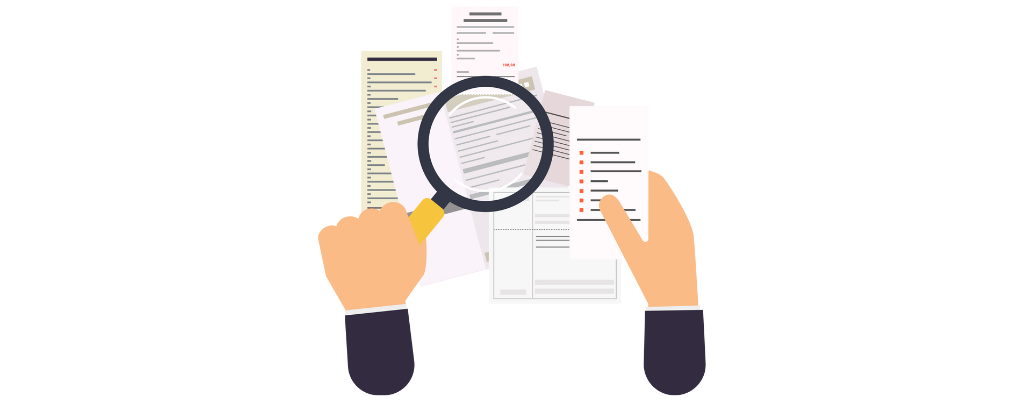How Cash Flow Problems Force Business Owners Into Bad Decisions
Are you aware of instances when companies spend more money than they bring in? The company is running and performing transactions, but cash is leaving the door faster than it is entering- Cash flow problems!
A negative cash flow indicates the firm has trouble meeting its financial obligations. A lag time exists between the time of payment and the time the funds are available in your account when using electronic payment processing.
Cash flow problems can occur when invoicing customers and waiting for payment. Companies facing challenges with their cash flow should prioritise receiving payments promptly.
You can better understand your firm’s financial health by creating and analysing a weekly and monthly cash flow budget. If you sell your goods and services at too cheap, you risk a loss. Discounts offered by sales teams that eat into profit margins are similar.
Having a steady stream of income is vital. That’s what separates those who thrive from those who only survive. A steady pulse indicates health, but irregular beats suggest problems ahead; therefore, recognising its importance is like knowing your business’s pulse.
Businesses are more likely to close operations due to cash flow problems than to changes in the market or intense competition. Therefore, it’s not only about the numbers; it’s about protecting your company’s core values by maintaining a steady flow of funds.
What are Cash Flow problems?
Many companies have difficulties with their cash flow. The movement of funds is called cash flow. This term characterises a company’s incoming and outgoing cash flows. A negative net cash flow indicates cash flow problems for a company. This happens when a company’s outgoing cash flows exceed its incoming cash.

Cash Flow Problems: Negative Consequences
Since a company’s ability to use capital depends on its cash flow, any problems arising should never be ignored. Avoid making any purchases if your company’s cash flow is negative.
A few typical outcomes of cash flow problems are:
Unpaid or Late bills
Companies with trouble generating enough money to pay their bills when they come due may go bankrupt. They risk having their market reputation damaged because of this.
Failure to Pay Vendors
A company’s inability to pay for suppliers’ raw materials can result in negative cash flow. Negative cash flow refers to the situation in which a business does not have enough money to pay its bills because its costs are higher than its revenues. The company’s operation might be affected if this causes a delay or inability to pay for the raw materials.
Lack of Funds to Pay Employees
Companies could have trouble paying their employees if their cash flow is inadequate. Due to this, the company’s financial health, as well as employee morale, might take a hit. It might also make it harder for the firms to recruit top employees if word gets out about the company’s financial woes.
Buying Inventory is Not Possible
Businesses may have to shut down when they can’t afford to acquire supplies. There can be substantial financial losses because of this. Also, customers may start to distrust you, which might hurt your business’s loyalty.

Reasons for Cash Flow Problems
There are many potential causes of cash flow problems for businesses. Some of them are as follows:
Inefficient Management
Poor management is the root cause of cash flow difficulties for many firms, even though it seems avoidable. This happens because companies don’t always give enough thought to cash flow management plans. After all, they don’t realise how important it is.
No matter how big or small, any company is susceptible to ineffective cash flow management. It does, however, happen more often in smaller companies, which are less likely to have financial managers.
When making financial choices, larger firms often overlook cash flow management because they don’t always consider how their actions can affect the company’s cash flow.
Losing Money
Firms can go through periods of complete loss. When production expenses exceed revenues for an extended period, they incur a loss. A negative cash flow is not always the result of a loss, but it is usually the result of a lack of cash on hand. The company is still losing money since it isn’t making enough to pay its bills.
Giving Clients an Excessive Amount of Time to Pay
Buying things on credit or in instalments is an option offered by many businesses. Doing so allows them to defer payment and prevents them from receiving cash inflows. Sometimes it takes a customer a week, a month, a year, or more to pay.
Businesses sometimes face challenges with their cash flow when clients wait too long to pay. Even when the company spends money on manufacturing particular items or services and makes transactions, it does not get any money.
Strategies for Resolving Cash Flow Problems
It is up to management to determine the root causes of cash flow issues and the specifics of the company’s situation to implement an appropriate solution.
Here are a few things that companies can do to fix their cash flow problems:
Changing the Payment Schedule
A company can attempt to postpone payments if it has trouble with its cash flow. As part of this process, it might negotiate a payment delay with its vendors.
Using Overdrafts
A company can get a short-term loan with an overdraft whenever needed.
Reducing Expenditure
To alleviate cash flow problems, a company might attempt to decrease expenses by looking for substitutes using less expensive fuel or raw material sources.
Discovering New Avenues for Financial Gain
There is a chance that certain companies can devise strategies that will increase their revenue.
Budget Projections
With cash flow forecasting, a company can better comprehend its cash flow. Estimates of future cash flows into and out of a business are known as cash flow forecasts.
A company can foresee cash flow problems using a cash flow forecast to predict cash flow in the future. Once management has expected the incoming and outgoing cash flow, they can assess whether it will be positive or negative and the reasons behind it.
They will have time to prepare for future cash flow problems if a negative cash flow is anticipated. Despite how prevalent cash flow concerns are, no company should ever ignore them. To prevent cash flow difficulties, companies should always determine what causes them.
Navigating Cash Flow Problems with Outbooks
Taking responsibility early on is crucial in the face of financial uncertainty. Protect your company against the wave of uncertainty. Remember that the key is to strategise wisely.
Outbooks will be your reliable option for all your cash flow problems. When times go tough financially, you can rely on our expertise to help you weather the storm.
Get on board and find the perfect people to help you stabilise your cash flow problems. Reach us at info@outbooks.co.uk or 44 330 057 8597 for navigating your cash flow problems!
Parul is a content specialist with expertise in accounting and bookkeeping. Her writing covers a wide range of accounting topics such as payroll, financial reporting and more. Her content is well-researched and she has a strong understanding of accounting terms and industry-specific terminologies. As a subject matter expert, she simplifies complex concepts into clear, practical insights, helping businesses with accurate tips and solutions to make informed decisions.


